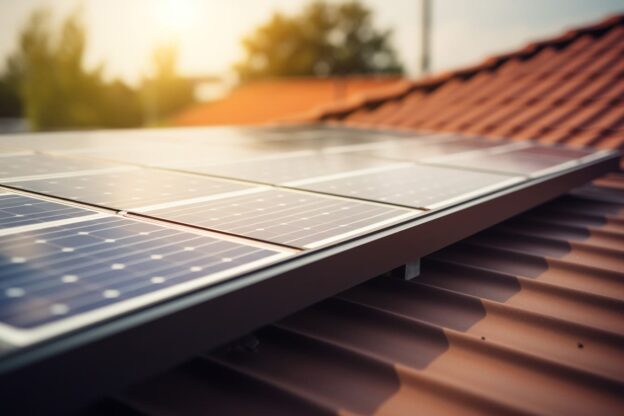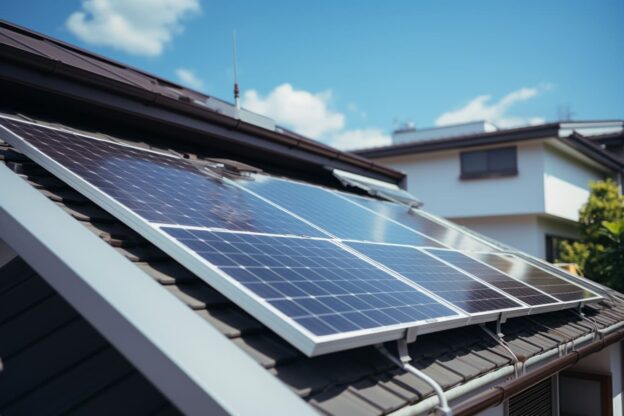If you’re interested in saving money on your energy bills and reducing your carbon footprint, installing solar panels on your home can be a great option. However, for beginners, the process of choosing and installing solar panels can seem overwhelming. In this article, we’ll provide a comprehensive introduction to home solar systems and solar power for beginners to help you get started.
How Do Home Solar Systems Work?
Home solar systems work by converting sunlight into electricity. The solar panels, which are typically installed on the roof of the home, are made up of photovoltaic (PV) cells that absorb sunlight and convert it into direct current (DC) electricity. This DC electricity is then sent to an inverter, which converts it into alternating current (AC) electricity that can be used to power the home.
The AC electricity that is produced by the solar panels is used to power the home during the day, and any excess electricity that is produced is sent back to the grid. In some cases, homeowners may be able to receive credit for the excess electricity that is sent back to the grid, which can further reduce energy costs.
Benefits of Home Solar Systems
There are many benefits to installing a home solar system, including:
- Lower energy bills: Solar panels can significantly reduce energy bills, and in some cases, homeowners may be able to eliminate their energy bills altogether.
- Reduced carbon footprint: By using solar energy, homeowners can reduce their carbon footprint and help combat climate change. The U.S. Department of Energy provides an overview of the environmental benefits.
- Increased home value: Homes with solar panels installed may be more attractive to potential buyers, and may have a higher resale value.
- Energy independence: With a home solar system, homeowners can produce their own electricity and become less reliant on the grid.
Choosing the Right Solar Panels
When choosing solar panels for your home, there are a few factors to consider:
- Efficiency: The efficiency of the solar panels will determine how much electricity they can produce, and how much space they will require on the roof of the home.
- Cost: Solar panels can be expensive, so it’s important to consider the cost of the panels and the potential savings on energy bills.
- Durability: Solar panels are exposed to the elements, so it’s important to choose panels that are durable and can withstand harsh weather conditions.
- Warranty: Solar panels typically come with a warranty, so it’s important to choose panels with a warranty that covers both the panels and the inverter. Consumer Reports provides solar panel buying advice.
Installation Process
The installation process for solar panels can vary depending on the home and the type of panels being installed. In general, the process involves:
- A consultation with a solar panel installer to determine the best location for the panels and to assess the energy needs of the home.
- The installation of the solar panels on the roof of the home.
- The installation of an inverter to convert the DC electricity produced by the solar panels into AC electricity that can be used to power the home.
- The connection of the solar system to the grid, which may involve the installation of a new meter.
EnergySage explains the typical solar panel installation process.
Maintenance and Upkeep
Once the solar system is installed, there are a few things that homeowners can do to ensure that it continues to operate efficiently:
- Regular cleaning of the solar panels to remove any dirt or debris that may be blocking the sunlight.
- Regular monitoring of the solar system to ensure that it is producing the expected amount of electricity.
- Regular maintenance of the inverter to ensure that it is functioning properly.
Conclusion
A home solar system can be a great way to save money on energy bills, reduce your carbon footprint, and increase the value of your home. By understanding the basics of home solar systems and choosing the right panels for your home, you can take advantage of the benefits of solar energy.


